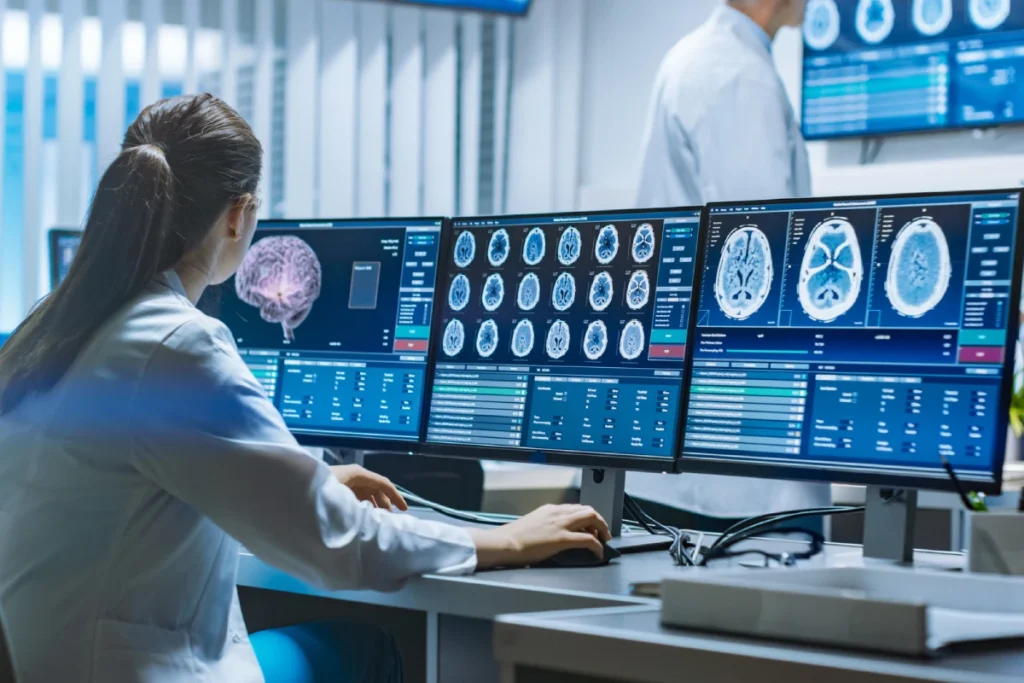
What does a Limited Scope Radiologic Technologist do?
Limited Scope Radiologic Technologists, also known as LSRTs, are professionals who specialize in performing specific radiologic procedures. They have a narrower scope of practice compared to general radiologic technologists. LSRTs are typically trained to perform X-rays on specific parts of the body, such as the extremities (arms, legs, hands, and feet) or the chest.
LSRTs work under the supervision of radiologists or other licensed healthcare professionals. They follow strict protocols and safety measures to ensure accurate and high-quality imaging. LSRTs also interact with patients, explaining the procedure and addressing any concerns they may have.
How to become a Limited Scope Radiologic Technologist?
Becoming a Limited Scope Radiologic Technologist typically requires completing a formal education program and obtaining certification. Here are the steps to pursue a career as an LSRT:
- Education: The first step is to enroll in an accredited radiologic technology program that offers training specifically for Limited Scope Radiologic Technologists. These programs are usually available at community colleges, vocational schools, or specialized training centers. The program duration can vary, but it typically takes around 12-24 months to complete.
- Coursework: LSRT programs typically include a combination of classroom instruction and hands-on clinical training. Students learn about radiation safety, anatomy, patient positioning, image production, and equipment operation. They also gain practical experience by performing radiologic procedures under the supervision of experienced technologists.
- Clinical Experience: In addition to classroom instruction, LSRT programs require students to complete a certain number of hours of clinical experience. This allows students to apply their knowledge and skills in a real healthcare setting, working with actual patients.
- Certification: After completing the educational requirements, aspiring LSRTs must pass a certification exam to become licensed. The specific requirements for certification vary by state, so it’s important to research the regulations in the state where you plan to practice. Some states may also require LSRTs to obtain additional certifications, such as CPR certification.
- Continuing Education: Like other healthcare professions, LSRTs are required to participate in continuing education to maintain their certification. This ensures that they stay updated with the latest advancements and techniques in radiologic technology.
Limited Scope Radiologic Technologist job outlook
The job outlook for Limited Scope Radiologic Technologists is generally positive. As the demand for healthcare services continues to grow, so does the need for skilled radiologic technologists. LSRTs can find employment opportunities in various healthcare settings, including hospitals, clinics, imaging centers, and physician offices.
According to the Bureau of Labor Statistics (BLS), the employment of radiologic technologists is projected to grow by 7% from 2019 to 2029, faster than the average for all occupations. This growth can be attributed to the aging population and the increasing prevalence of chronic diseases that require diagnostic imaging.
Final Thoughts
Becoming a Limited Scope Radiologic Technologist can be a rewarding career choice for those who have a passion for healthcare and technology. It offers the opportunity to make a difference in patients’ lives by assisting in the diagnosis and treatment of various medical conditions.
If you are interested in pursuing a career as an LSRT, consider exploring accredited radiologic technology programs that offer specialized training for Limited Scope Radiologic Technologists. CCI Training Center is one such institution that provides comprehensive training programs in radiologic technology and offers flexible options such as accelerated program formats and instructor-led online classes.
With CCI Training Center, you can benefit from financial aid options, instructor support, and career services to help you succeed in your journey to becoming a Limited Scope Radiologic Technologist.
Program Offered
- Pharmacy Technician Training
- Online Medical Assistant
- Medical Billing and Coding Specialist Program
- Cloud Computing Technician Training
- Computer Network Technician
- Business and Accounting
- Radiology Technician Training
- Medical Assistant Program
- Computer Support Technician
- Cybersecurity Program
- Virtual Assistant Training
This article is written by
Share this article
Program Offered
- Pharmacy Technician Training
- Online Medical Assistant
- Medical Billing and Coding Specialist Program
- Cloud Computing Technician Training
- Computer Network Technician
- Business and Accounting
- Radiology Technician Training
- Medical Assistant Program
- Computer Support Technician
- Cybersecurity Program
- Virtual Assistant Training
This article is written by
Share this article
Related Articles





CCI Training Center Proudly Completes
41 Years in Career Training Services












